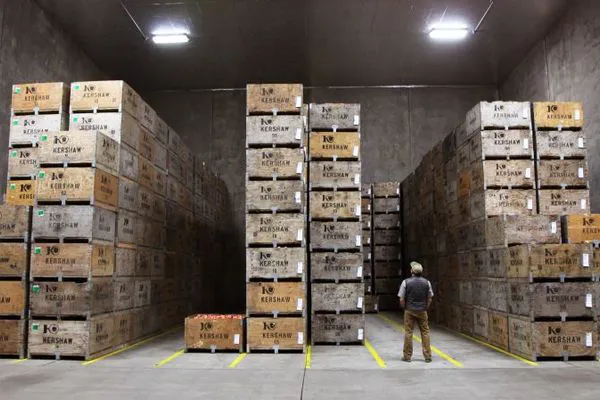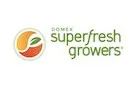Recently, Jim Bair, CEO of the U.S. Apple Association, posted an educational piece about apples on LinkedIn. He discussed how storage technologies are making year-round availability of apples possible. From the comments, it was clear that this post was eye-opening to many of his followers. "We have been astounded by the attention Jim Bair's post has generated," says Mike Preacher with Domex Superfresh Growers, who is pictured in the photo in the LinkedIn post. "Being so close to it, we forget the amazing technology that allows us to deliver crisp and tasty apples all year," he commented. "A lot of smart people started working on this many decades ago, and we continue to improve upon that work. When I was a kid, we wouldn't eat apples past January," he shared.
 Mike Preacher captured in a moment of reflection, thinking about all the hands that went into producing those apples. Photo credit: Brena Mengarelli.
Mike Preacher captured in a moment of reflection, thinking about all the hands that went into producing those apples. Photo credit: Brena Mengarelli.
Year-round availability
Washington apple harvest typically starts in summer. "We kick off with Gala apples late July and then finish with Pink Lady® in November," Preacher commented. Altogether, the company brings more than 30 varieties, counting organic and conventional, to market. About 30 percent of total production volume is sold closer to harvest and stored in regular cold rooms. The large majority, 70 percent of total production, goes into controlled atmosphere (CA) rooms, allowing these apples to be stored for up to 12 months. "The controlled atmosphere technology allows us to have domestic supply for 365 days per year," Preacher said.
During the CA process, the apples are asleep. The temperature is being lowered to a level just above freezing, removing oxygen, and replacing it with nitrogen, the most abundant element in earth's atmosphere. "During this process, there is not enough atmospheric oxygen for normal biological degradation or enough oxygen for physiological disorders to manifest. As a result, the apples stay in great condition." Once the sealed doors are opened, the apples wake up and are ready to be washed, packed, and shipped just as if they were freshly harvested. Throughout the year, controlled atmosphere rooms are opened up to have a steady supply of fresh apples, matching Superfresh Growers' sales flow.
Energy a big factor
The company has roughly 500 controlled atmosphere storage rooms with each room holding up to 2.25 million pounds of apples. One room has the ability to fill 54 refrigerated semi-trailers. It takes a lot of energy to keep the CA rooms maintained at these cold temperatures year-round. "Energy is definitely a big factor, and we invest in solar panels to maximize energy efficiency from the 300 days of sunshine we receive annually in eastern and central Washington and Oregon." In addition, the company invests in technology and sensors to monitor the health of the apples while they are asleep. "Once the doors are locked, we are not able to go inside to check on them, so we rely on technology to keep us updated on their status," Preacher said. Nitrogen is utilized to manipulate the atmosphere and drive the oxygen out. "We are investing in eco-friendly nitrogen generators." Last but not least, the success of the technology is driven by an educated and attentive team that understands how to properly execute procedures, as well as re-introduce the sleeping apples into normal atmospheric conditions. "They need to be woken up slowly to not create any issues that would shock them and cause them to respirate too fast."
 For more information:
For more information:
Catherine Gipe-Stewart
Superfresh Growers
Tel: +1 (509) 966-1814
[email protected]
www.superfreshgrowers.com
